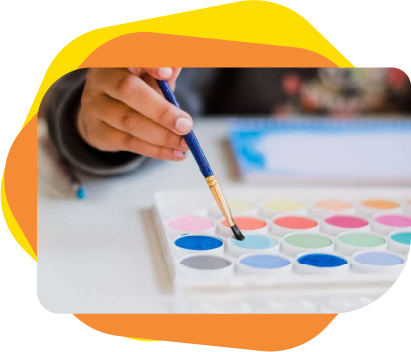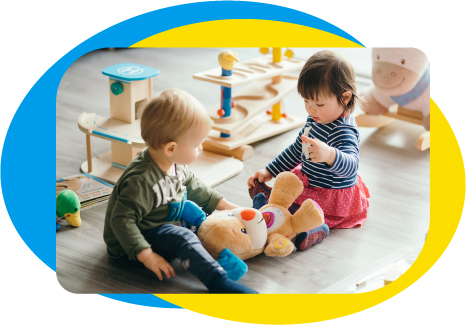Play and learn.
Play Matters
Positive experiences as infants and toddlers provide a foundation for children to develop more advanced self-regulation and social skills.
Infants and toddlers pass through many stages of development and it is important that they have opportunities to explore with these new skills.
Infants and toddlers learn about the world through active exploration with their senses.
- They need to touch, see, taste, smell and listen to the materials in their environment.
- This learning is supported by their relationships with caring adults.
Learning is an active process and involves exploring possibilities in ways that we may not have considered.
Introducing new concepts and providing opportunities for language development are important for intellectual development of infants and toddlers through discovery and play.
Our knowledgable staff use their knowledge about developmentally appropriate practice and the interests of the children to set up activities that children will enjoy exploring and provides opportunities to learn.

"An engaged child is a happy child."
—Saskatchewan Editor

Read.
Emergent Literacy
Emergent literacy refers to the development of literacy skills in young children before they start formal education. It includes a range of experiences, such as exposure to books, storytelling, writing, and alphabet knowledge. Emergent literacy is important because it sets the foundation for future literacy and academic success. Children who have early experiences with literacy are more likely to develop a love for reading and writing, have better language skills, and perform better in school.
Additionally, emergent literacy can help children develop important social and emotional skills, such as communication, empathy, and problem-solving. Therefore, it is crucial for parents and caregivers to encourage and support emergent literacy in young children, and provide them with rich and meaningful literacy experiences.
Play.
At Home
Observe to see what children are interested in and then supply materials to support that interest.
- View the environment as full of opportunities. (A staircase can be an invitation for learning for a child who is learning to climb.)
- Presenting materials that you already have in a new way can stimulate new interest and exploration for the children.
Talk to our friendly staff for ideas of things that you can do at home to support the growth and development of your child through play.

Making Connections
Connecting with other parents who have children of different ages or backgrounds can provide a wealth of benefits:
1
Connecting with other parents can create a support network for both the children and parents. Children can benefit from having positive role models and opportunities to socialize with a diverse group of peers, while parents can receive emotional support and encouragement.
2
It can help parents feel less isolated and provide a sense of community, which is especially important for new parents or those going through challenging times.
3
It can provide an opportunity to share experiences, advice and resources, and learn from one another. Parents can gain insight into different parenting styles, approaches to discipline, and ways to manage various situations.
